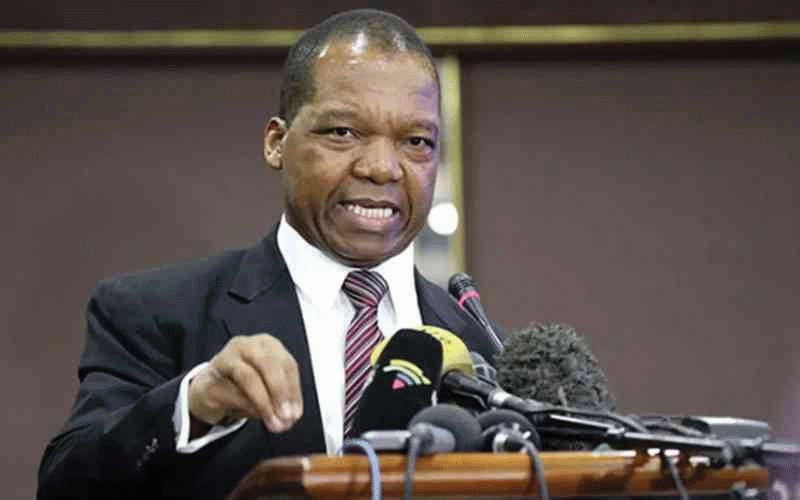
A GENERATION of emerging Zimbabwean contractors, who spearheaded key road rehabilitation projects under the government’s flagship Emergency Road Rehabilitation Programme (ERRP), are facing bankruptcy and lawsuits after the ministry of Finance failed to pay them on time.
Many of these contractors poured personal capital and bank loans into the projects, expecting prompt settlements that never came.
Some have waited up to 10 months for payment, only to receive compensation converted into local currency at unfavourable exchange rates, eroding the value of their earnings and leaving them unable to cover their initial United States dollar-denominated costs.
The crisis exposes a deep fault line in Zimbabwe’s infrastructure development drive: the government’s inability to promptly pay the companies rebuilding its roads.
The fallout has not only crippled individual firms, but also threatens to derail the broader ERRP as confidence evaporates among small and medium-sized enterprises that form its backbone.
For Tawanda Mangoma, director of Ngomla Investments (Pvt) Ltd, what began as an opportunity for empowerment has turned into a nightmare of debt and litigation.
His company rehabilitated Alko Road in Mwenezi and Sean Rebeiro Road in Chiredzi, investing over US$500 000 raised from banks, relatives and friends.
“We pumped out all our resources to make the government projects come to fruition,” Mangoma told the Zimbabwe Independent.
- Roads rehab to reduce carnage by 50%: Mhona
- Govt hijacks Byo road project
- Outcry over state of Old Gwanda road
- Govt engages contractors to fix pothholes
Keep Reading
“We were optimistic that when the projects got finished, we would celebrate with joy and honour of empowerment. But alas, payment delays gave us a heavy blow.”
After nearly 10 months of waiting, Ngomla Investments received a fraction of what it was owed.
“We expected almost a million dollars in revenue, but we ended up receiving a paltry US$50 000 paid in RTGS,” Mangoma said.
The payment, he added, was nowhere near enough to service his company’s foreign-denominated debts.
“We are battling serious legal reparations, which have stripped our glory and joy into perennial court attendees defending legal battles,” Mangoma lamented, a sentiment widely shared across the industry.
The plight of these contractors reflects a broader fiscal squeeze.
Market analysts cite a severe liquidity crunch within government, worsened by the Reserve Bank of Zimbabwe’s strict policy against funding quasi-fiscal activities outside the national budget.
While that stance aims to rein in inflation, it has left ministries cash-starved and delayed payments to suppliers. The result is a chilling effect on participation in state infrastructure tenders.
“Participation by small players in government projects has gone down drastically,” one contractor, who requested anonymity, said.
“When payments take nearly a year, you can’t pay your workers or service debts. It’s now a programme for the well-connected.”
Many contractors, he added, are now selling their machinery just to stay afloat.
“It is now difficult to get back into business. We are offloading equipment to settle debts incurred during the projects. Getting back into business has become impossible.”
The ripple effects have reached workers. According to Muchapiwa Mazarura, secretary-general of the Zimbabwe Construction and Allied Trade Workers Union, job losses in the sector have been mounting.
“For the past one year, we have been experiencing difficulties negotiating salaries and wages, the response we get from employers is that government is failing to pay contractors,” Mazarura told the Independent recently.
Tinashe Manzungu, president of the Zimbabwe Building Contractors Association, painted an even bleaker picture.
“Some of our members are owed huge sums — invoices dating back to early 2024,” Manzungu said in a recent interview.
“Companies have shut down. Some owners have lost their homes.”
He added that Treasury’s silence has deepened the crisis, with contractors now waiting up to eight months for payment, while material and labour costs continue to rise.
“Without communication, there’s no planning and no future,” Manzungu warned.
An industry executive, who declined to be named, dismissed the popular belief that government contracts guarantee prompt payment.
“It’s a myth,” the executive said. “Treasury is overwhelmed, we understand that, but even partial payments could have saved many firms.”
In March, Finance minister Mthuli Ncube announced that Treasury had cleared part of its arrears, about US$30 million, mainly for the Harare-Masvingo-Beitbridge Road.
But experts say that figure barely scratches the surface of what contractors are owed nationwide.
A recent Auditor-General’s report compounded concerns, revealing that more than US$500 million in Treasury disbursements for 2024 were not captured in the Public Finance Management System, raising serious transparency questions about public fund management.
With contractors now facing lawsuits, asset seizures and crippled credit ratings, industry players are urging sweeping reforms, including structured payment schedules tied to project milestones, indexed payments to preserve value and full disclosure of outstanding arrears.
Joshua Sacco, deputy minister of Transport and Infrastructure Development, told the Independent that the government was stabilising relations with contractors through new payment plans and stricter oversight.
“We are working well with our contractors and have established payment plans,” he said.
“We are also encouraging them to take on only the work they can handle. This includes contractors who use their own funds and are reimbursed upon completion.”
The reforms represent a marked shift from Zimbabwe’s traditional infrastructure financing model, which depended largely on Treasury allocations and disbursements from Zimbabwe National Road Administration funds that were frequently delayed or eroded by inflation.
Under the new approach, the government is prioritising public-private partnerships, where private investors finance and implement projects upfront, while the state repays the costs over time. This ensures that construction begins only once funding is fully secured.
“As a ministry, we are also pursuing public-private partnerships with secured funding,” Sacco said.
“In Harare, for example, we are working on about six interchanges and these are all funded before they even commence.”
“You are then assured that you are paying off a loan over time, but the infrastructure has already been put in place.”
He stated that the government was abandoning the long-standing practice of paying contractors upfront, a system he admitted led to inefficiencies, inflated costs and poor workmanship.
“We are moving away from paying contractors in advance, where these projects are all funded before they even commence. This sometimes resulted in subpar work,” the deputy minister said.
The government is currently grappling with a public debt estimated at over US$21 billion.











